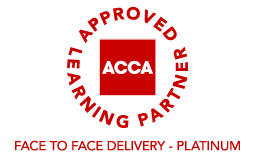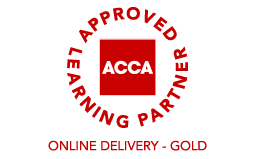First, here’s the long and the short of it. What is CFA? CFA stands for Chartered Financial Analyst®. What is a Chartered Financial Analyst? A Chartered Financial Analyst (CFA for short) is an investment professional who has earned the CFA designation by fulfilling all the requirements of the CFA Program, including the required professional work experience.
Now, before enrolling in that CFA course and starting your journey toward becoming a Chartered Financial Analyst, read our detailed guide on what the CFA designation is and how to become a certified financial analyst. In this post, we will answer:
- What do CFAs do?
- What must you do to earn a Chartered Financial Analyst certification?
- How much does the CFA Program cost?
- How much do CFAs make?
- Does a CFA make sense for you?
Ready? Sit tight, and let’s begin.
What do CFAs do?
CFAs help individuals and entities make investment decisions. They manage assets, create funds, analyze investment instruments, execute trades, provide investment advisory, create investment models, or lend their expertise to enhance investment regulations and improve financial systems.
CFAs are everywhere. They are qualified to hold senior and executive positions in private banks, funds, holding companies, insurance companies, corporations, governments, and other organizations. CFAs can work anywhere expertise is needed to grow and manage capital and make strategic investment decisions.
What must you do to earn a Chartered Financial Analyst certification?
The following are the steps you must accomplish to earn a Chartered Financial Analyst certification:
1. Enroll in the CFA Program.
You can register for the CFA Program on the CFA Institute website. To be admitted, you need an international travel passport, and you must be any of the following:
- Holder of a bachelor’s degree
- An undergraduate student who will be 23 or fewer months away from graduation when you sit for your Level I exam, will be 11 or fewer months from your graduation when you sit for your Level II exam and will have completed your degree OR accumulated at least 4,000 hours of professional work experience when you sit for your Level III exam
- Have at least 4,000 hours of professional work experience acquired over a minimum of 36 sequential months before registering for your Level I exam
- Have at least 4,000 hours of combined professional work experience and higher education acquired over a minimum of 36 sequential months before sitting for your Level I exam, ensuring the dates logged for professional work experience and higher education do not overlap
Your professional work experiences do not have to be investment-related to be counted for CFA Program eligibility, but they must require high-level judgment, specialized knowledge, and business skills. Even internships may be eligible if they are paid.
Note: You must live in a CFA-participating country. You must also be proficient in English, as all CFA exams are administered in English.
2. Enroll in a CFA course.
You need to pass three exams to become a CFA. To prepare, enroll in an online financial training course and review the topics that the exams will cover.
Choose an exam-focused program. For convenience, especially if you’re working or a university student, opt for an online study package that lets you choose online, face-to-face, or a blended approach as needed.
3. Take the CFA Exams.
You must register for the three CFA exams: Level I, Level II, and Level III. Registration is a two-step process.
First, register for the appropriate level exam. Next, choose your exam schedule. Be mindful of the exam registration and scheduling deadlines.
4. Apply for regular membership with the CFA Institute.
Once you have completed and passed all exams, apply for regular membership with the CFA. You will need the following:
- Professional references: You need two references if one of your references is a member of the CFA local society you’re applying to. Otherwise, you need three references. Work supervisors make the best references.
- Professional work experience assessment: Log and describe all relevant work experiences. You must have at least 4,000 hours of relevant professional work experience acquired over a minimum of 36 months. Part-time, full-time, and remote work done before, during or after CFA program entry can qualify as long as they are directly related to the investment decision-making process or their outcome informs or adds value to it.
When you apply for regular membership, you will choose the CFA local society that will review your application. If your application is approved, you will become a CFA charterholder. At that point, you may apply for membership with your local CFA society – but that is optional.
How much does the CFA Program cost?
Costs vary. The following will affect how much it will cost you to earn your CFA designation:
- One-time enrollment fee: $350 payable upon registration for the CFA Program
- Exam registration fees: required at every level and vary with the registration period – $940 during early registration and $1,250 during standard registration
- Exam rescheduling fee: $250 to reschedule within your exam window
- CFA course fee: varies with exam preparation provider and study package
- CFA Institute regular membership annual fee: $299
- CFA local society annual dues: variable depending on local society
How much do CFAs make?
Compensation varies by role and industry. However, according to the 2019 CFA Institute compensation study, investment portfolio managers who are CFA charterholders have a median base salary of $126,000 per year and, including bonuses and incentives, a median total annual compensation of $177,000.
Does a CFA Make Sense for You?
If you want to work in finance, particularly in roles that influence or directly impact investment decisions, go for a CFA. Such roles can include:
- Managing investment portfolios
- Preparing financial models
- Analyzing data and statistics in preparation for making investment decisions
- Deciding or advising on capital structure and funding mechanisms
- Analyzing and valuing securities
- Deciding or advising on asset sales and capital investments
- Working as an investment consultant
- Supervising employees who do any of the above
Start Your CFA Journey
What is a Chartered Financial Analyst? A CFA is a well-respected investment professional who makes investment decisions or contributes to the investment decision-making process. Become a CFA if you want to become a CFA charterholder.
Phoenix Financial Training is a training institute in the United Arab Emirates. We specialize in providing professional exam preparation courses for finance professionals. Enroll in our CFA course and start your CFA journey today. Contact us to learn more.



